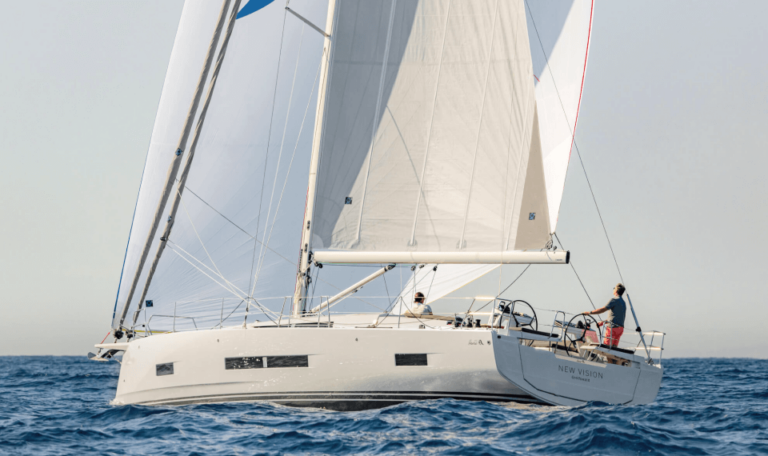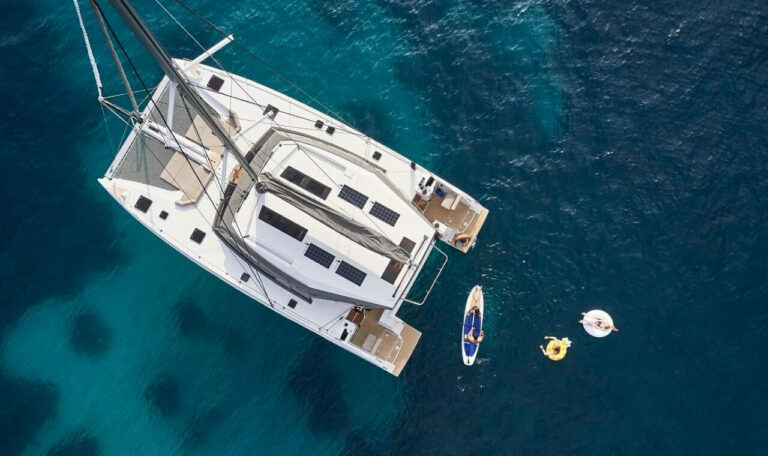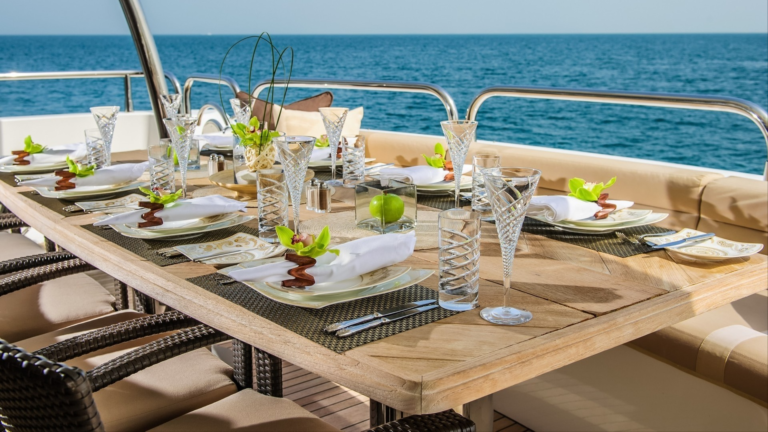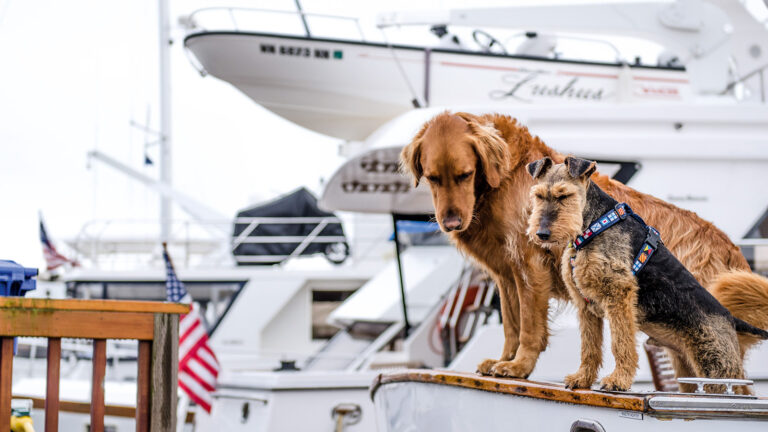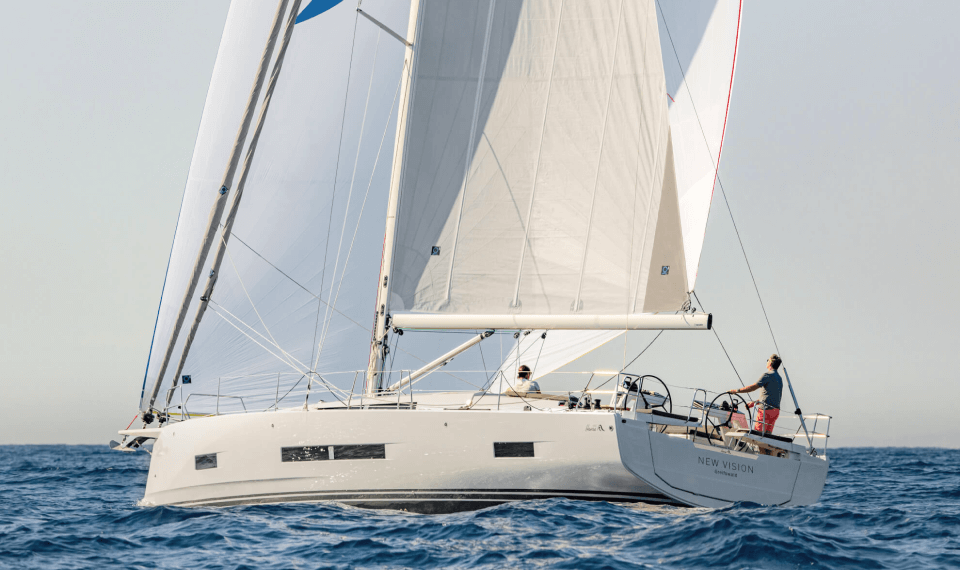
You don’t want to turn up to your yacht charter holiday only to be turned away because you don’t have the right skipper/captain’s licence. You might be able to save the day by hiring a qualified skipper, but this can be expensive and will take up a cabin on your charter yacht. The best solution is to make sure you have all the right qualifications before you turn up.
In this article, we will outline the different licences needed and how you might obtain them. Of course, your specific requirements will vary depending on both your nationality and the country you are chartering a boat in, but we will address these variables as best we can.
Do You Need A Licence
One way or another, the answers is ultimately going to be yes.
In some countries it is a legal requirement, and in some it isn’t. But even when it isn’t a legal requirement, you will be hard pressed to find a yacht charter company who is willing to send you off on their yacht worth hundreds of thousands without some evidence that you know what you are doing. Add to this the requirements put in place by the charter companies insurance policy, and we can basically say yes, you need a skippers/captains licence.
Local Licences
Almost every maritime nation has it’s own set of Skipper/Captains licences and courses. Croatia has it’s own, Germany has it’s own, etc. If you only ever intend to sail in that particular country, then getting the local licence will work. However, if you like the idea of sailing abroad, or chartering a yacht in a different country next year, then these local licences will be of little use.
What we need is a licence which is recognised internationally, and that is where the ICC comes in.
The Essential ICC
The ICC (International Certificate of Competence) pretty much does what is says on the tin. It was created to be an international certificate/licence which proves the holders competence as a Skipper/Captain, and it is the only licence approved by the United Nations as a legitimate recreational sailing license.
In layman’s terms, it is a piece of paper issued by the government which states that they are willing to vouch for you competence at handling a yacht safely.
Officially, the ICC is only guaranteed to be accepted in 25 countries, but due to the lack of any alternative it is also generally accepted and asked for in all other countries too.
The 25 countries which have legally committed to accepting the ICC are:
Austria, Belarus, Belgium, Bulgaria, Croatia, Czech Republic, Finland, France, Germany, Hungary, Ireland, Italy, Latvia, Lithuania, Luxembourg, Netherlands, Norway, Poland, Romania, Serbia, Slovakia, South Africa, Switzerland, the United Kingdom, and Ukraine.
But as we said, it is also generally accepted globally where proof of competence is required making the ICC a useful document to carry.

Who Can Get An ICC
Anyone can get an ICC, but the route to get it varies depending on your nationality. See below to find out more.
How to Get An ICC
There is no official ICC course, it is an assessment of your abilities. However, if turning up for an assessment where you will be asked to demonstrate both your theoretical knowledge and practical skills sounds daunting, there is also a more enjoyable way to get an ICC which we will cover in a minute.
But first, if you go for an ICC assessment you will be tested on:
- Safety – including equipment and briefing, and MOB procedures.
- Meteorology – including interpreting weather forecasts.
- Preparation and Maintenance – Including engine checks, basic stability, fuel provision, and passage planning.
- IRPCS – Knowledge of all rules (1-41).
- Manoeuvring – Including coming alongside/ departing pontoons/ walls with/against the wind, and turning in confined spaces.
- Anchoring and Mooring
- Handling under Sail (if sail) – Including raising, reefing, and stowing sails, sailing a course against the wind, tacking and gybing, sail trim, and managing crew through sailing manoeuvres.
- Navigation – Use of paper charts, understanding tidal heights, position fixing and verification of position using at least two sources, pilotage plans, sources of local information and regulations.
If you feel ready to go straight into a practical and theoretical test on all of that, you can book up an ICC assessment at a test centre near you. However, if you would prefer to avoid stressful assessments then there is another option which involves taking courses in place of exams.
Anyone from the UK, or any other country not listed here:
Austria, Belarus, Belgium, Bulgaria, Croatia, Czech Republic, Finland, Germany, Hungary, Ireland, Latvia, Lithuania, Luxembourg, Netherlands, Norway, Romania, Serbia, Slovakia, South Africa, Switzerland, and Ukraine.
Can obtain an ICC simply by completing the RYA Day Skipper course. No ICC assessment required.
Those who are from one of the countries listed would still find the RYA Day Skipper course the perfect preparation for an ICC assessment, but will have to undertake the assessment subsequently. An RYA Training centre may be able to build this onto the end of a practical course with prior arrangement.
RYA Day Skipper Course
The RYA offer the most well regarded and internationally recognised yachting qualifications in the world. They are also the most popular with more than 270,000 people of all ages and abilities undertaking some form of RYA training each year. They are so well-regarded that simply passing an RYA Day Skipper course entitles you to an ICC without further assessment, and many charter companies actually ask for RYA course completion certificates or licences as well as an ICC before allowing you to charter one of their vessels.
The RYA Day Skipper course is the RYA’s entry level Skippers qualification which has a broad syllabus. Unlike the ICC, it is very much an instructor led course where as long as you listen to your instructor and practice what they tell you, you are likely to succeed. The pressure is reduced and replaced with a more effective learning environment.
How To Get An RYA Day Skipper Licence
The RYA Day Skipper course comes in two parts, a theory part, and a practical part.
The theory can be taken in a classroom, but is more popularly taken online. The practical can be taken anywhere in the world with an RYA practical training centre. Most practical training centres require the theory part to be completed before you book on to the practical part, so this is where you should start.
Online Theory

The online RYA Day Skipper Theory course takes about 50 hours to complete, but if you take it with Ardent Training you can complete the course anytime, any where, and completely at your own pace. Some cram it all in to a week, others take a leisurely 9-months. The average completion time is about 6 weeks.
When taking the course with Ardent Training you can expect:
- The full course in both video and text format. The video is filmed on the water putting the concepts into context. The text is backed up with animations and diagrams providing a backup to the video for differently learning styles.
- An invitation to the Ardent community with forums, discussions, and live events. You might be studying at home, but you don’t have to study alone.
- Unlimited instant live 1:1 instructor support 12 hours a day, 364 days a year. When using Ardent Training’s live chat feature you can expect a response from a world-class instructor within minutes (average response time less than 60 seconds).
The total cost is £315, and this includes everything, no hidden costs! This is significantly cheaper than a classroom course for which you would have to also factor in food, accommodation, travel, and time off work.Whilst a few may still prefer a classroom course, and live chat can’t replace having an instructor stood in front of the classroom, you can get a Free Trial of Ardent Training’s RYA Day Skipper Online Theory Course at www.ardent-training.com/free-trial.html so you can see first hand if might work for you.
Practical
Once the theory course has been completed you will need to go to a practical training centre to get on a boat and enjoy putting everything you have learned into practice.
The practical course is 5 days on a yacht (4 days for motor boats) where you will be living aboard with an instructor and taught everything you need to know to be a confident and competent skipper. The cost is usually between £500 and £900 for the practical course (depending on where and when you take it).
There are RYA practical training centres all over the world, and your instructors at Ardent Training will be more than happy to help you find the perfect practical course and location for you.
Conclusion
In the realm of chartering yachts, the question of licenses isn’t just a mere formality—it’s the threshold between setting sail smoothly and facing unexpected hurdles. Whether mandated by law or demanded by charter companies to safeguard their vessels, the need for a skipper’s license resonates universally.
Local licenses have their place, tailored to specific maritime domains, yet their limitations surface when voyages extend beyond native shores. Enter the International Certificate of Competence (ICC), a beacon for global recognition, endorsed by the United Nations, spanning 25 committed nations and generally universally acknowledged elsewhere.
While the assessment route is available for proving one’s maritime mettle, the RYA Day Skipper course offers a structured, less stressful alternative, empowering enthusiasts to earn an ICC through education rather than examination. With the theoretical and practical facets converging through online modules and hands-on experience, the journey toward becoming a competent skipper transforms from a daunting test to an enriching learning voyage.
Head over to Ardent Training to experience their online course free at ardent-training.com.
This article was written by Edd Hewett, a professional yacht skipper who has worked all over the world including as a Skipper on whale and dolphin research and conservation vessels, Antarctic expedition vessels, and BBC David Attenborough documentary filming vessels. Edd is now Principal of Ardent Training, an online RYA Training Centre.
